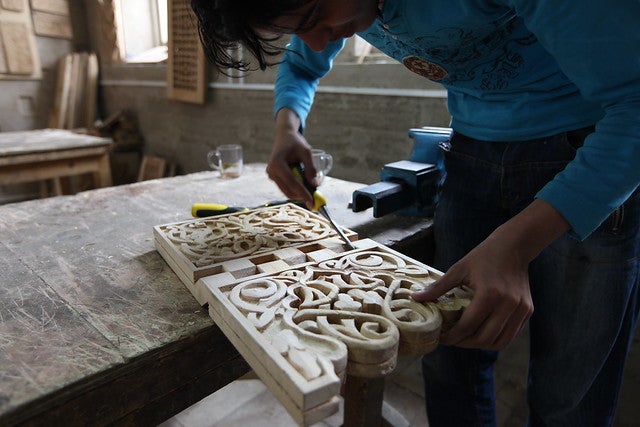
- Select a language for the TTS:
- UK English Female
- UK English Male
- US English Female
- US English Male
- Australian Female
- Australian Male
- Language selected: (auto detect) - EN
Play all audios:
When Eric Gorges was in his 20s, he started experiencing severe panic attacks. “Ultimately it made me agoraphobic and I didn’t leave my house and was pretty heavily medicated for long
periods of time,” he said. He loved his job working in IT for Xerox Corp., but something had to change. Gorges grew up in a family of woodworkers and hobbyists, who never hired anyone to fix
anything, he said. STAY INFORMED ON THE LATEST NEWS Sign up for WPR’s email newsletter. He had always loved working with his hands, and knew that he needed to get in touch with that part of
himself. “Working with my hands allowed an escape for me and for my mind,” Gorges said. “I could lose sense of time in it, and it really was something that healed me in more ways than one.”
That change grew into a career building custom motorcycles, and a PBS show “A Craftsman’s Legacy,” where Gorges interviews fellow craftsmen on their trade and gets a lesson himself. Now,
Gorges is releasing a new book, of the same title. His experience with panic attacks was just one example of the power working with your hands can have on your life, he said. In one episode
of his show, Gorges visits potter David McDonald, just days after the death of his mother. Learning from McDonald and getting behind a pottery wheel gave him an opportunity to heal, he said.
“I was rather lost to tell you the truth,” he said. “I made probably seven or eight bowls at that time because it just again allowed me to refocus my mind and think about something other
than my mom … and get back into doing what I was there to do.” [embedded content] Doing a craft brings a focus and a presence you might not have in other areas of your life, Gorges said, and
pulls you away from the urge to multitask. Do one thing really well, he continued, don’t waste energy doing many mediocre things. “When you’re working with your hands, making something,
you’re forced to focus, you have to be in that environment right now, right there and blow everything else out of your mind,” he said. “It’s just therapeutic.” Whether you’re building,
knitting, painting, or whatever feels good to you, let go of the illusion of perfection, Gorges said. “What if you fail? Who cares. You’ve learned from it,” he said. “The difference between
an expert and a novice, is an expert has made more mistakes than you have,” he said. Think back to when you were a kid and made a Christmas ornament or a Mother’s Day card, he said. “You’re
in school making this and you’re eight years old and you’re putting everything you have into this, you’re using all the glitters you’re using all the pasta noodles, you are so excited to
make this,” Gorges said. “That’s what I want you to find again because it’s still in you,” he said. _Wisconsin Public Radio, © Copyright 2025, Board of Regents of the University of Wisconsin
System and Wisconsin Educational Communications Board._





